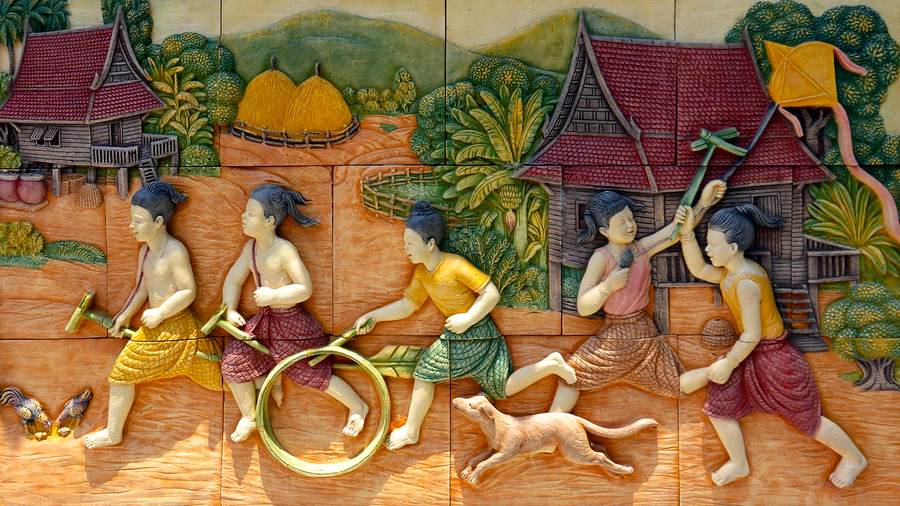So I have heard. At one time the Buddha was staying near Sāvatthī in the Eastern Monastery, the stilt longhouse of Migāra’s mother. Now at that time the dear and beloved granddaughter of Visākhā Migāra’s Mother had just passed away. Then, in the middle of the day, Visākhā with wet clothes and hair went to the Buddha, bowed, and sat down. The Buddha said to her,
“So, Visākhā, where are you coming from in the middle of the day with wet clothes and hair?” “Sir, my beloved granddaughter has just passed away. That’s why I came here in the middle of the day with wet clothes and hair.” “Visākhā, would you like as many children and grandchildren as there are people in the whole of Sāvatthī?” “I would, sir.”
“But Visākhā, how many people pass away each day in Sāvatthī?” “Every day, sir, there are ten people passing away in Sāvatthī. Or else there are nine, eight, seven, six, five, four, three, two, or at least one person who passes away every day in Sāvatthī. Sāvatthī is never without someone passing away.”
“What do you think, Visākhā? Would there ever be a time when your clothes and hair were not wet?” “No, sir. Enough, sir, with so many children and grandchildren.”
“Those who have a hundred loved ones, Visākhā, have a hundred sufferings. Those who have ninety loved ones, or eighty, seventy, sixty, fifty, forty, thirty, twenty, ten, nine, eight, seven, six, five, four, three, two, or one loved one have one suffering. Those who have no loved ones have no suffering. They are free of sorrow, stains, and anguish I say.”
Then, understanding this matter, on that occasion the Buddha expressed this heartfelt sentiment:
“All the sorrows and lamentations
and the countless forms of suffering in the world
occur because of those that we love;
without loved ones they do not occur.That’s why those who have no loved ones at all in the world
are happy and free of grief.
So aspiring to the sorrowless and stainless,
have no loved ones in the world at all.”
Read this translation of Udāna 8.8 Visākhāsutta: With Visākhā by Bhikkhu Sujato on SuttaCentral.net. Or read a different translation on DhammaTalks.org or Ancient-Buddhist-Texts.net. Or listen on SC-Voice.net. Or explore the Pali on DigitalPaliReader.online.


 Copyright: Creative Commons Zero (CC0) To the extent possible under law, Bhikkhu Sujato has waived all copyright and related or neighboring rights to his own translations on
Copyright: Creative Commons Zero (CC0) To the extent possible under law, Bhikkhu Sujato has waived all copyright and related or neighboring rights to his own translations on